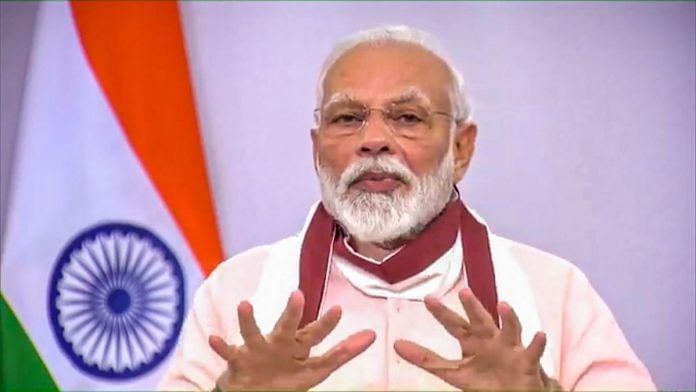New Delhi: In today’s world, politics in all major democracies is highly polarised and therefore, economic issues also get divided.
US political columnist Charles Krauthammer coined the term ‘Bush Derangement Syndrome’, during the presidency of George W. Bush Jr. in 2003. Krauthammer defined it as the acute onset of paranoia in otherwise normal people in reaction to policies, the presidency, name and the very existence of the person.
Now, this term is being used for present US President Donald Trump as the ‘Trump Derangement Syndrome’. In the Indian context, it can be used for Prime Minister Narendra Modi as well — the ‘Modi Derangement Syndrome’.
American journalist and political scientist Fareed Zakaria, in a recent op-ed for The Washington Post, described these syndromes as an intense hatred for a personality to the point that it impairs judgment.
Also read: The 3 big unknowns that have forced Nirmala Sitharaman to be prudent with economic package
States can borrow more from Centre, but conditions apply
Earlier, states could borrow 3.5 per cent of the Gross State Domestic Product from the central government.
In the latest Covid-19 relief package, this limit has been increased it to 5 per cent with an additional 1.5 per cent increase, conditional to specific reforms.
These reforms include steps to ensure the universalisation of ration cards (by linking the Aadhaar number to ration cards), improving ease of doing business, bringing in measures to make state-owned power distribution firms more profitable and shoring up urban local body revenues.
If states meet these prescribed conditions, they can borrow an additional 0.25 per cent each for every measure. The remaining 0.5 per cent borrowing will be subject to them fully meeting three of the four conditions.
States such as Kerala, Tamil Nadu, West Bengal and Telangana have expressed their opposition to such a move, pointing out that the central government was wrong to place conditions on borrowing by states.
Also read: Link Aadhaar to ration cards, hike property tax — how states can increase borrowing limit
Is the criticism warranted?
Every credit given is backed with either collateral or comes with certain conditions, whether it’s from banks or global financial institutions such as International Monetary Fund, World Bank etc.
Similarly, the central government, while lending money, has to be prudent and can use it to check populist measures of state governments.
The conditions put forth by the Modi government for the 1.5 per cent increase are not anti-poor but are reforms to usher good governance in the country. These steps will also improve economies of the states.
When judging the criticism on the basis of these facts, it seems that they stem more from the ‘Modi Derangement Syndrome’ and do not have merits of their own.
Watch the latest episode of CTC here:



